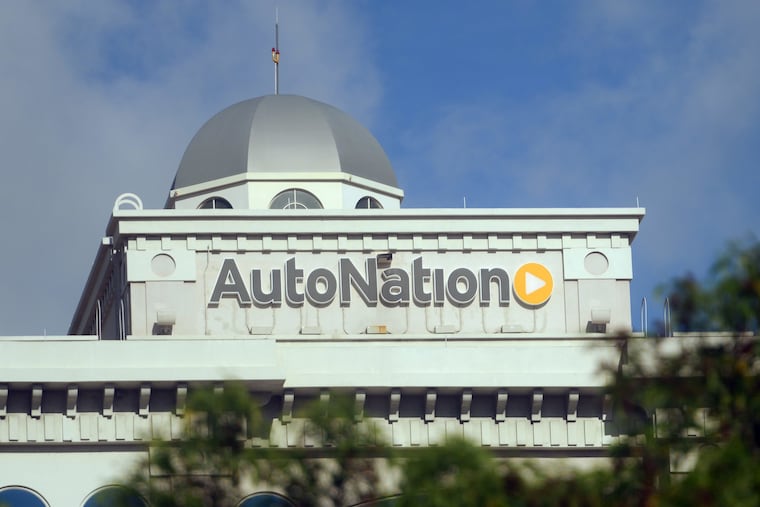Why some firms that got fast-track coronavirus PPP millions are giving it back to their banks
Optinose’s doctor-customers were upset that the company, with plenty of cash on hand, got a “forgivable” government-backed loan while they couldn’t.

Despite the “small” in its name, the U.S. Small Business Administration isn’t normally seen as a charity for the little guy. Since the 1950s, it has approved taxpayer guarantees for bank loans to firms that grew into Apple, FedEx, Nike — even Chobani, the Greek-yogurt maker whose billionaire founder Hamdi Ulukaya controls Philadelphia’s popular La Colombe coffeeshops.
So when Congress approved coronavirus rescue loans totaling $349 billion starting in early April, and $310 billion more beginning Monday, some well-connected firms asked their favorite bankers to grab them some of these new “forgiveable” bank loans — at a maximum of $10 million per location.
Sure, the law was supposed to help “small businesses” with fewer than 500 workers hold on to their workers. But who wasn’t hurting?
While more than a million rushed to apply, some national businesses got approved fast. Ruth’s Chris, the fancy steakhouse chain, and Shake Shack, the burger chain, got $20 million and $10 million in Paycheck Protection Program loans. Dealers at AutoNation, the nation’s largest car sales chain, were approved for a combined $77 million. The NBA’s Los Angeles Lakers got $4.6 million.
But amid a rising chorus of public complaints, each of those companies has since returned the money.
In the Philadelphia area, shopping-mall owner PREIT said it planned to apply for PPP. It hasn’t confirmed whether it got any money. And Optinose, a Yardley company that employs 200 people developing anti-sinusitis medicines, told shareholders in an SEC filing on April 16 that it had collected $4.4 million in PPP loans from its bank, JPMorgan.
The next week, Optinose, reversed course, too, telling the SEC it would repay the money.
What changed? “Public outrage" grew fast following news reports of "publicly traded companies taking large loans and in some cases, several loans through different subsidiaries,” while many thousands of smaller businesses couldn’t get their applications in at all, Keefe, Bruyette & Woods analyst Kelly Motta told clients.
The Inquirer and other news outlets have shown how big banks rushed well-connected borrowers to the front of the PPP line.
JPMorgan, the nation’s biggest bank, acknowledges it won approvals for almost all applicants who were customers of its private-banking and corporate-lending offices. But it failed to approve more than 90% of the less-well-connected masses who swamped its PPP process. Bank of America and Wells Fargo showed similarly low approval rates.
That outrage caused Treasury Secretary Steve Mnuchin to issue a clarification last week reiterating something the bigger borrowers either hadn’t known or had discounted: They should double-check the SBA requirement that "current economic uncertainty makes this loan request necessary to support the ongoing operations of the applicant.” If they didn’t really need the money that badly, Treasury added, they’d better give it back.
Why did Optinose reverse? Some of the ear, nose, and throat doctors who are its target market told the company they were surprised it could raise PPP money while they had failed to do so for their own operations.
To be sure, Optinose could make a case it needed help: The company lost more than $100 million last year as it burned through investor cash trying to get its main product through final clinical trials and into the market. Its share price had fallen from $27 in 2018 to $4 Tuesday. But it still has $150 million in cash on its balance sheet (and more than $110 million in debt).
Still, doctors forced to cancel elective procedures and furlough staff had a tough time sympathizing. “We are hopeful that both the money returned to Treasury by Optinose" and by other companies “will facilitate relief” for more small businesses, "including many of the physician practices we serve,” the company said in a statement.
It wasn’t just embarrassed public companies that gave PPP money back, says Rory Ritrievi, chief executive at Millersburg, Pa.-based Mid Penn Bank, which has a loan office in Philadelphia and (as First Priority Bank) branches in Bucks, Chester, and Montgomery Counties.
“We did a $600,000 loan to one [real estate] company — approved, signed, and disbursed, and then they contacted us and gave it back," Ritrievi said. “They said, ‘Hey, look, private-equity investors may see this as a badge of dishonor.’”
“We said, ‘No problem,’” and recycled the money to new borrowers, including first-time customers, Ritrievi added.
Mid Penn was one of the most successful PPP banks. It made 2,400 loans worth $470 million — about one-third of its previous total loans, a higher proportion than any of the 130 publicly traded (and mostly larger) PPP lenders that analyst Motta has been tracking.
Community banks including Orrstown, Fulton, and Univest were also among the busiest PPP lenders in the nation for their size, Motta’s data show.
WSFS Bank, which approved 2,400 loans averaging more than $300,000 in the first round, has forwarded 1,900 more for round two so far this week. The average loan in the second round is smaller, about $100,000, said chief executive Rodger Levenson. He said it’s moving fast this time: “We are about halfway through."
Mid Penn’s Ritrievi said it’s no secret why local banks won PPP loans for many smaller businesses and new customers, instead of giving larger sums to public firms and other well-connected recipients: “This is our sweet spot,” he said. “Owner-managed businesses, those are our main customers.”